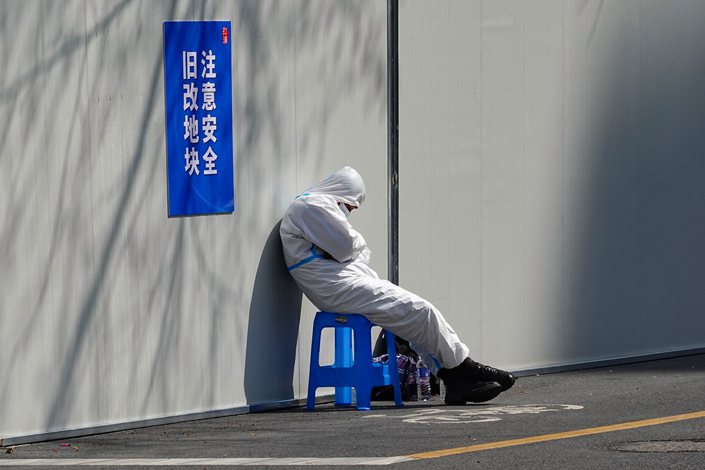
With the recent Covid-19 flare-ups in Shenzhen and Shanghai, two of the most important economic engines in China are suddenly under pressure. The complicated and treacherous situation abroad has given rise to inflation, generating huge external pressure on capital flows, leaving the Chinese economy increasingly likely to fall into stagflation.
China is now facing its most difficult set of challenges in the more than two years since the Covid-19 pandemic began. Amid the country’s tightening of regulations over many sectors such as tutoring, internet, and real estate, investment and consumer spending have become lackluster. Chinese stocks have been convulsing after suffering a slump similar to the market collapse in 2015. This time, however, the plunge has nothing to do with deleveraging, but is entirely the result of shrinking investor confidence caused by shocks in the broader economy.
The policymakers need to address these signals and respond positively to them, so as to overcome the difficulties.
Speaking of the latest Covid-19 flare-ups in the country, President Xi Jinping proposed to “strive to achieve the best results in epidemic control with minimum costs.” At the close of this year’s “Two Sessions,” Premier Li Keqiang said that “China will keep to the course of wider openness, just as courses of the Yangtze and Yellow rivers will not reverse.” Recently, the State Council’s Financial Stability and Development Committee made timely and well-placed statements, vowing that policies should adhere to the market, the rule of law, and globalization. These voices from the leadership have reverberated across the economy.
However, what’s of greater concern to the market is how these policies from the top will be implemented.
For foreign policy, China should get a grip on the rising populist sentiment at home, return to common sense and rationality, and try to maintain the confidence of foreign investors in China’s development while persevering with globalization and opening up to the outside world. This is a critical period to create an international environment conducive to China’s peaceful development in the coming decades, so it is important not to take a single wrong step.
For now, domestic policies should focus on several major points.
First, they should deal with two goals that seem to be at odds — effectively controlling Covid-19 and stabilizing the economy, and find ways to implement the policy of “striving to achieve the best results in epidemic control with minimum costs.” In addition to controlling Covid, policymakers should strengthen monetary policy and fiscal policy, and make them more targeted.
Second, there have been continued adjustments to domestic housing policy since December 2021, but a key issue — restoring the confidence of banks in the healthy development of the real estate industry — remains unresolved. Local governments, which benefit the most from the real estate industry, should take the initiative to lower the cost of land where possible, instead of letting land costs rise faster than housing prices. As property developers deleverage, private-sector firms shouldn’t bear the entire cost alone of the real estate industry’s transformation. The industry, worth nearly 20 trillion yuan ($3.2 trillion), will always be an important pillar of China’s economy and can’t just be left to collapse.
Third, policymakers should improve the rule of law and set up a system of do’s and don’ts for capital expansion. This will give the market clear expectations, rather than leaving it in a constant state of confusion and panic. Otherwise, China’s goals of market-oriented development, rule of law and globalization will be difficult for investors to take seriously, and the goal of increasing the proportion of direct social financing, such as equity and bond financing, will become more and more distant. If companies feel insecure, and a mechanism for doling out incentives and setting constraints is missing, it will be difficult for them to set long-term goals for China’s urgently needed investments in science and technology, including in emerging industries such as new energy. It will also be hard for these industries to overcome all the obstacles in development.
Now is the time to develop a policy combo for this special period and finalize the details and steps for implementation, one by one.
Ling Huawei is managing editor of Caixin Media and Caixin Weekly.
This article has been edited for length and clarity.
Zhang Yukun contributed to the translation.
Contact editor Michael Bellart (michaelbellart@caixin.com)
Get our weekly free Must-Read newsletter.







